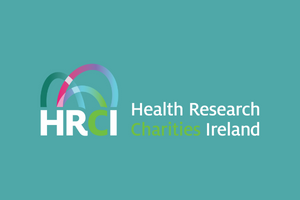
Our colleagues in Health Research Charities Ireland (HRCI) have recently published a position paper focusing on data and its importance to health research.
The paper has made three key recommendations to policy makers, which are as follows:
- Ensure national leadership in genomics, through a cross-government approach
- Urgently progress the implementation of electronic health records
- Establish a national research ethics committee for patient registries
As a member of the HRCI, and as an organisation that continues to invest in Irish epilepsy research, we fully support these recommendations.
The use of data in health research is paramount in helping researchers learn more about conditions and the people living with them. However, the correct systems need to be in place to ensure that data can be accurately collected and is not open to abuse.
Genomics, in particular the use of whole-genome sequencing and whole-exome sequencing is today a powerful tool to improve the diagnosis and treatment of people with many diseases and conditions including epilepsy. The decreasing cost of these techniques opens up opportunities for faster diagnoses especially for those with rare forms of epilepsy. This in turn can lead to faster, more personalised and often more cost-effective treatment plans. We know that the sooner seizures can be brought under control, the better the long-term outcomes tend to be. Despite the many benefits of genomic approaches to epilepsy treatment, testing is underutilised in Ireland and a national structure to prioritise genetics and genomic is urgently needed.
Regarding electronic health records, the epilepsy community has led in this area for many years through the Epilepsy Patient Record (EPR) and more recently the National Epilepsy Electronic Patient Portal. These technologies have had a huge impact on improving patient care and ensuring care is more patient-centred. However, these technologies are not yet universally used within the healthcare system. Visit the 'News' section of our website to see an article on the evidence of this impact.
Patient registries which capture health information at population level over long periods of time are critical tools in supporting researchers, understanding long term health outcomes and service needs, among many other benefits. Epilepsy & Pregnancy Registers are one such example, helping to understand the long-term effects of epilepsy medications taken during pregnancy. The Irish Register has suffered from a lack of investment in recent years and is currently not active, despite all the concerns brought to light through the case of Sodium Valproate (Epilim). HRCI are highlighting that there are no funding streams in Ireland to support the development or maintenance of registries and no policy or structure to govern them, all of which means that registries are yet another underutilised tool within our health system.
The HRCI’s recommendations require action and investment from policy makers and Government to make them a reality. We fully support the HRCI’s objectives in securing this investment to help provide a foundation for researchers to make continued breakthroughs that benefit people with epilepsy and other conditions/ diseases.
You can read the HRCI paper in full by visiting the HRCI website.
